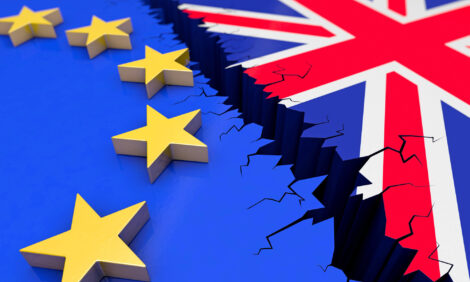



WTO Doha Talks Collapse
UK - The Doha round of WTO talks collapsed on Tuesday because of a failure to reach an agreement on the “special safeguard mechanism” for agricultural products in developing countries. According to a Livestock and Meat Commission (LMC) bulletin, up until this point there had been significant progress and Pascal Lamy, the WTO Director General, indicated that they had reached agreement on 18 out of 20 issues.EU trade Commissioner Peter Mandelson reported that 95 per cent of all modalities had been agreed. However, the Doha round requires an “all or nothing” agreement and when the distance between the US and India positions became unbridgeable, the talks came to an unexpected and abrupt end.
Talks “on ice” for up to two years
The current state of play is that while the current talks have been abandoned, most parties involved in the negotiations were keen to stress that the talks were not completely dead. The progress made on the majority of issues could yet form the basis of a future agreement. However, the likelihood of a quick resumption to talks is very small given upcoming elections in the US, India and Brazil and the end of the Commission College in the EU. This means it could be well into 2009 before attempts are made to restart the talks, with some commentators suggesting that very little could happen for up to two years.
No deal on agricultural safeguards
The talks failed because of an unexpected development which saw the US and India fail to agree on proposals on the “special safeguard mechanism”. This tool provides some protection from surges in agricultural imports into developing countries, in the form of increased import tariffs. The disagreement occurred over the trigger point for and the scale of the additional new tariffs, proposed under this mechanism. The number of products which the mechanism could be applied had also to be agreed. Other countries expressed concerns about this issue over the weekend, both importing and exporting nations, but it was the disagreement between the US and India, which led to the end of the talks. The EU tried to broker a deal, but neither side could come to an acceptable compromise.
Small Fall in UK Beef Imports
There was a marginal contraction in UK beef imports during the first five months of 2008 compared to the same period in 2007. Imports from the EU increased by four per cent to 80,350 tonnes, driven by a seven per cent rise in the volume of Irish beef entering the UK. Total imports from EU countries accounted for 80 per cent of the trade. Imports from outside of the EU contracted by 15 per cent. The EU import ban on Brazilian beef was the main reason for the decline. Imports from Uruguay more than doubled and there was a 31 per cent rise in imports from Argentina, but the overall total contracted.
|
UK Beef Imports (tonnes)
|
|||||
|---|---|---|---|---|---|
|
.
|
Jan-May 2006
|
Jan-May 2007
|
Jan-May 2008
|
% change 2008-2007
|
Jan/May Import Share
|
| Fresh & Frozen | 92,746 | 100,939 | 100,459 | - | - |
| from EU-27 | 72,658 | 77,229 | 80,350 | +4 | 80% |
| from non EU-27 | 20,089 | 23,711 | 20,109 | -15 | 20% |
|
Main Sources
|
|||||
| ROI | 58,091 | 58,093 | 62,053 | +7 | 62% |
| Uruguay | 3,853 | 3,949 | 8,226 | +108 | 8% |
|
Increasing 07 to 08
|
|||||
| Argentina | 1,912 | 1,338 | 1,757 | +31 | 2% |
| Australia | 1,88 | 1,172 | 1,422 | +21 | 1% |
|
Decreasing 07 to 08
|
|||||
| The Netherlands | 4,503 | 6,633 | 6,195 | -7 | 6% |
| Brazil | 10,515 | 12,620 | 5,574 | -56 | 6% |
| Germany | 5,302 | 7,714 | 5,062 | -34 | 5% |
Further Reading
| - | You can view the full report by clicking here. |
TheCattleSite News Desk


